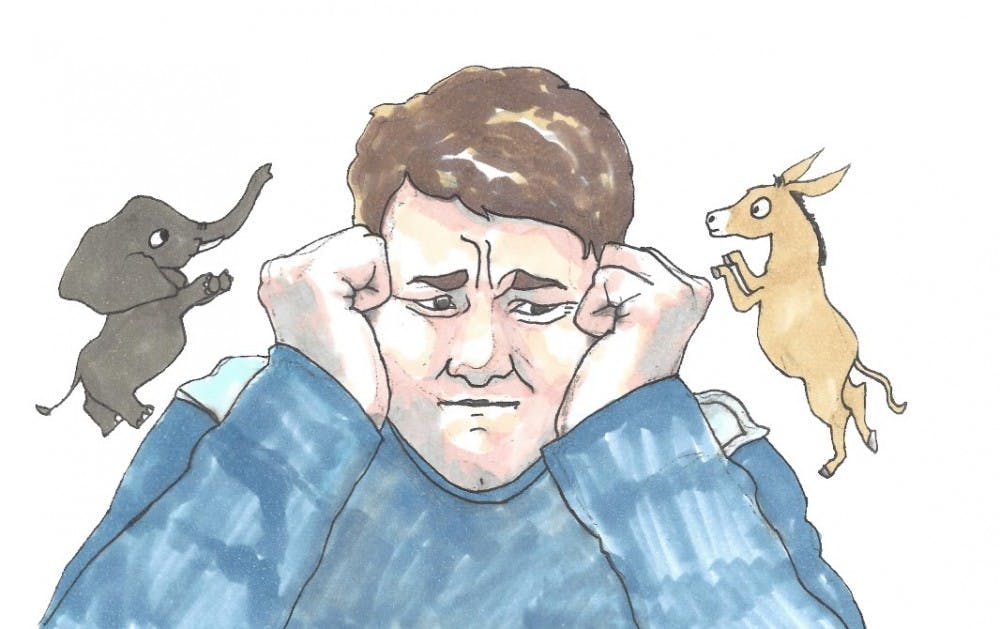The 24-hour news cycle has created a never ending barrage of politics. When people wake up in the morning it seems that there are several new potential crises and scandals to process throughout the day, with many more popping up before they go to sleep.
The situation is often exasperates because students cannot avoid politics on social media, and this constant exposure to politics is bad for students’ mental health.
A 2017 study from CareDash shows that since the 2016 presidential election, 59 percent of respondents reported experiencing some level of anxiety caused by the general election.
In a Vice article, Julie Barthels, author of "Resilience Revolution: A Workbook on Staying Sane in an Insane World," said in her interview that, “people of color, Jewish or Muslim have all identified that they believe racism has been validated within the current administration and that this makes them vulnerable to hate crimes or discrimination. They report being more aware when they are out in public for signs of potential violence If they had anxiety prior to this current political landscape, this has magnified it.”
Many ASU students may also feel that issues like racism have become more prominent in the past few years as every incident of discrimination goes viral.
With every new development of Robert Mueller’s investigation into the Trump campaign and every mass shooting being broadcast clearly and unmistakably on the internet, it is understandable for students to feel overwhelmed and to need to take a break from it.
Gina Woodall, a senior lecturer in the School of Politics and Global Studies, said this exposure to politics can have a variety of impacts.
"There is definitely that disengagement theory. Because people feel so overwhelmed and discouraged by the news, they may disengage from it completely," Woodall said.
Students who use between seven to 11 social media platforms “had substantially higher odds of having increased levels of both depression and anxiety symptoms” than those who only use zero to two platforms, according to a study published in Science Direct in 2017.
For most students, it is unreasonable to ask them to disconnect completely from social media, despite these risks.
Twitter can be a great source of news as well as a way to stay connected with friends. However, there are ways to combat these negative emotions. Twitter allows users to block twitter accounts that post upsetting content, as well as to blacklist certain terms or hashtags from their timeline altogether.
Getting involved in politics offline may also help to alleviate the feelings of helplessness that anxiety and depression can often bring.
"People can also feel worried about what might happen if they don't get off of the sidelines and help," Woodall said. "We saw that in the midterms when the voter turnout rose to the highest it had been for a midterm in years. People are angry."
Students should not be afraid to take a break from social media or to talk to a professional, either on or off campus, about what they’re feeling and how current politics are affecting them.
If you are in crisis or need help right now, please call the National Suicide Prevention Lifeline at 1-800-273-8255. Additionally, you can call EMPACT’s 24-Hour ASU-dedicated Crisis Line at 480-921-1006.
Reach the reporter at cfusillo@asu.edu or follow @katiefusillo on Twitter.
Editor’s note: The opinions presented in this column are the author’s and do not imply any endorsement from The State Press or its editors.
Want to join the conversation? Send an email to opiniondesk.statepress@gmail.com. Keep letters under 500 words and be sure to include your university affiliation. Anonymity will not be granted.
Like The State Press on Facebook and follow @statepress on Twitter.




